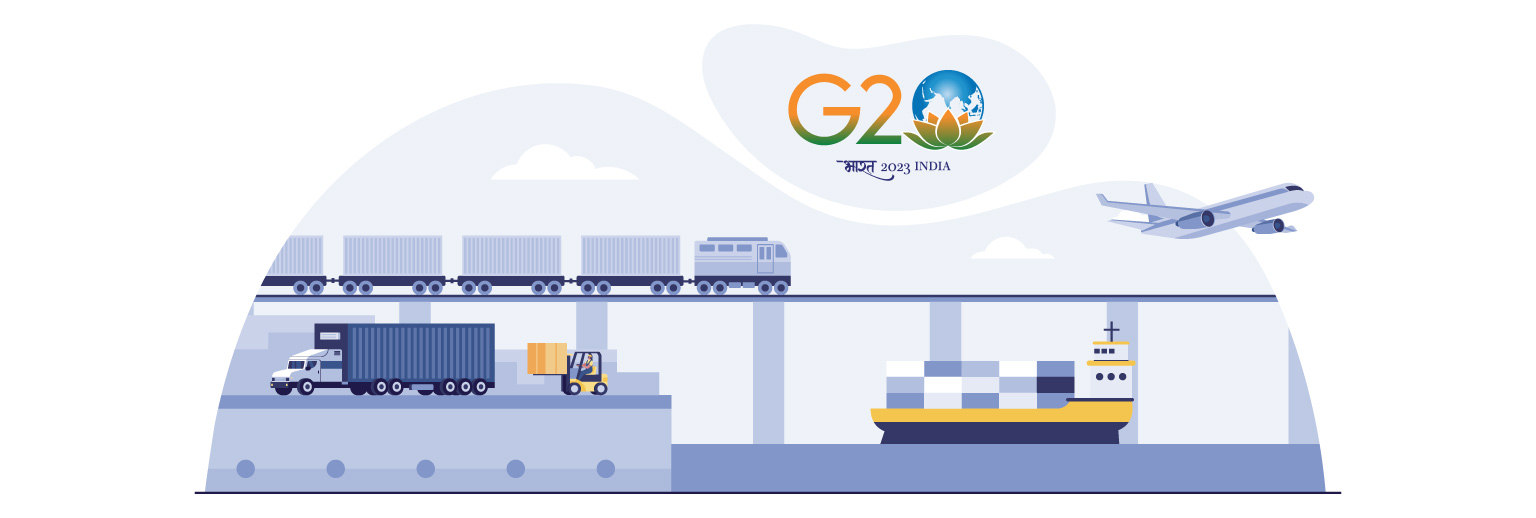
15 Sep Enhancing connectivity with a multi-modal trade linking corridor: G20 Outcome
The G20 summit concluded successfully at New Delhi, India on the first week of September 2023. A record 79 resolutions were passed and that accounts for the largest in the history of G20. The most salient feature of the summit was the trade corridor announced by Indian Prime Minister Narendra Modi.Apparently, this corridor is said to involve rail and maritime connectivity from India to Europe through Middle East. Interestingly, the corridor is said to have a potential to speed up trade between India and Europe by a whopping 40 per cent. World leaders consider this as a beacon of cooperation, innovation and shared progress.
Here are some benefits the initiative can offer.
Reduces cost
The first and foremost benefit of having a corridor connecting three continents is that the cost of transporting cargo from India to Europe will reduce significantly. India’s agenda of reducing logistics cost by less than 6 per cent will be feasible to achieve with this initiative. Moreover, other countries involved in this initiative too will benefit by further reducing their logistics cost.
Time saving
Moving cargo from India to Europe through shipping consumes four to six weeks on an average. Ironically, the days could even be higher depending on the destination. In order to address this, India is building a combination of railway and seaport connectivity. By doing so, it is believed that weeks could eventually reduce to a few days accounting for faster cargo movements across continents.
Economically progressive
Countries in Asia, Middle East and Europe are said to get economically progressive with this initiative. Why? Because a variety of heavy equipments, perishable cargo etc. can be moved seamlessly. While it is imperative that Middle East will be the transshipment facilitator, the takeaways are considerably high (both economically and socially).
How Cargo Community Systems can be enablers?
Cargo Community Systems with their intrinsic nature will play a very crucial role in enhancing the digital infrastructure supporting this economic corridor. By connecting all trade stakeholders in the value-chain CCSs will develop the network of networks by leveraging technology to narrow trade discrepancy, connect continents, civilisations and improve government service delivery. As logistics is rapidly evolving and gradually operating on harmonised data supported by deep tech like Artificial intelligence, Internet of Things, Blockchain, and 5G, Cargo Community Systems have a large role to play as an enabler.
The new silk route?
While the world leaders are welcoming and expressing interest to be a part of it, there are some who oppose it too as it affects already existing Belt and Road initiative by China. However, if implemented and executed well, this initiative will be an optimised version of the medieval silk route, which brought traders from across the world to South Asia. In the modern context, it can very well improve cross border connectivity and improve trade between continents.

